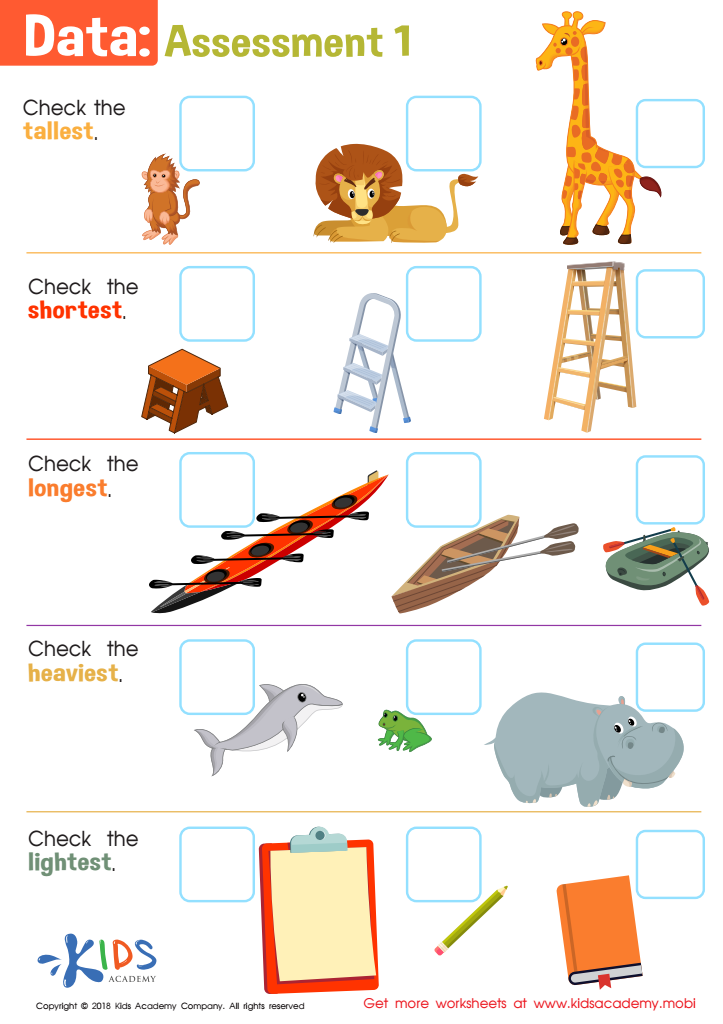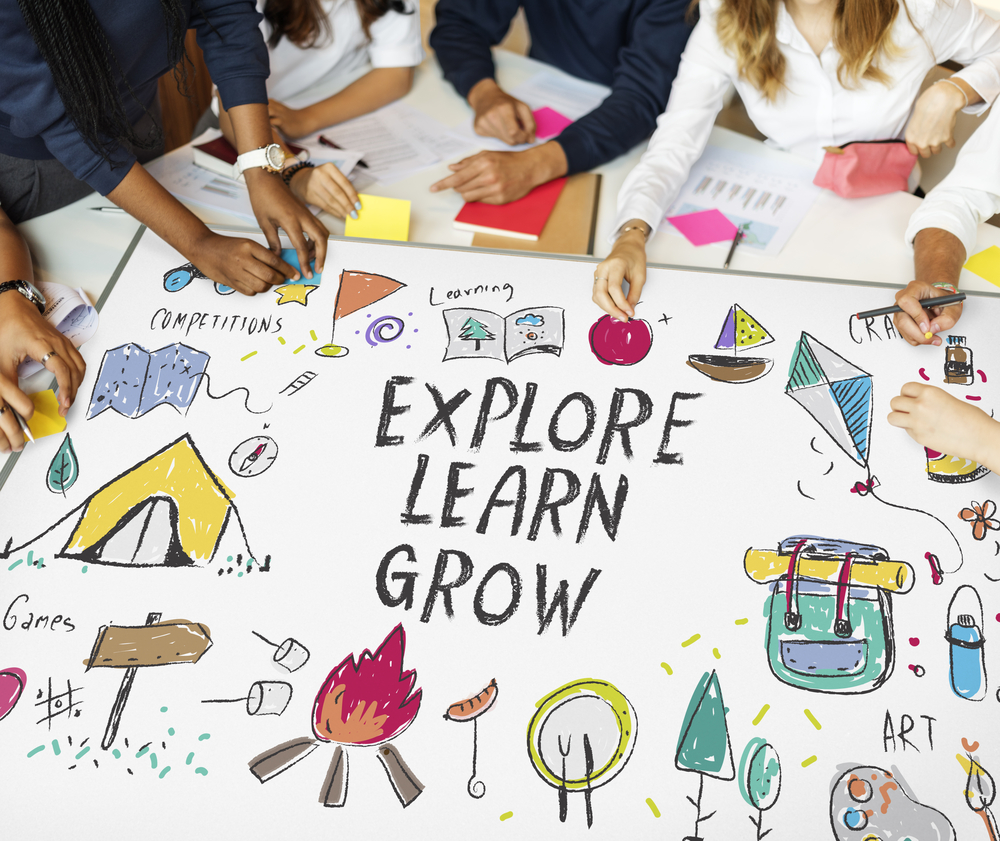Making judgments Worksheets for Kids
1 filtered results
-
From - To


Data: Assessment 1 Worksheet
Question/Answer
How to train the Making judgments skill in Kindergarten students learning about Measurement?
To train the Making Judgments skill in Kindergarten students learning about Measurement, engage them in activities where they estimate and then measure items using non-standard units (like blocks or hands). Encourage discussions about why they chose a certain number of units for measuring and guide them to reflect on the accuracy of their estimations, fostering critical thinking and decision-making skills.
What does the Making judgments skill mean when it comes to Kindergarten Measurement learning?
In the context of Kindergarten Measurement learning, the "Making judgments" skill refers to the ability of young learners to make decisions or draw conclusions based on comparisons of lengths, weights, and capacities. This involves practical tasks like determining which object is longer, heavier, or holds more, thus developing their analytical and reasoning skills in understanding basic measurement concepts.
How does the mastery of the Making judgments skill affect a student's performance at an early age?
Mastery of the Making Judgments skill at an early age significantly enhances a student's ability to analyze information, make informed decisions, and solve problems more effectively. This skill fosters critical thinking, promotes deeper learning, and improves academic performance by enabling students to evaluate evidence, consider different perspectives, and draw reasoned conclusions, thus preparing them for complex decision-making in the future.
 Assign to My Students
Assign to My Students


.jpg)













